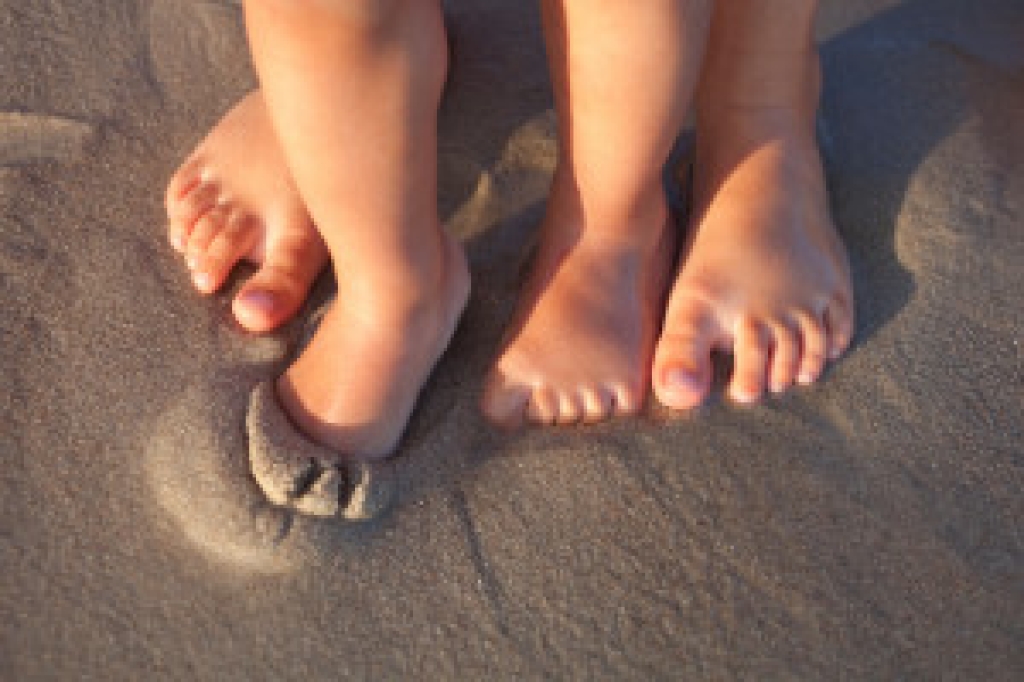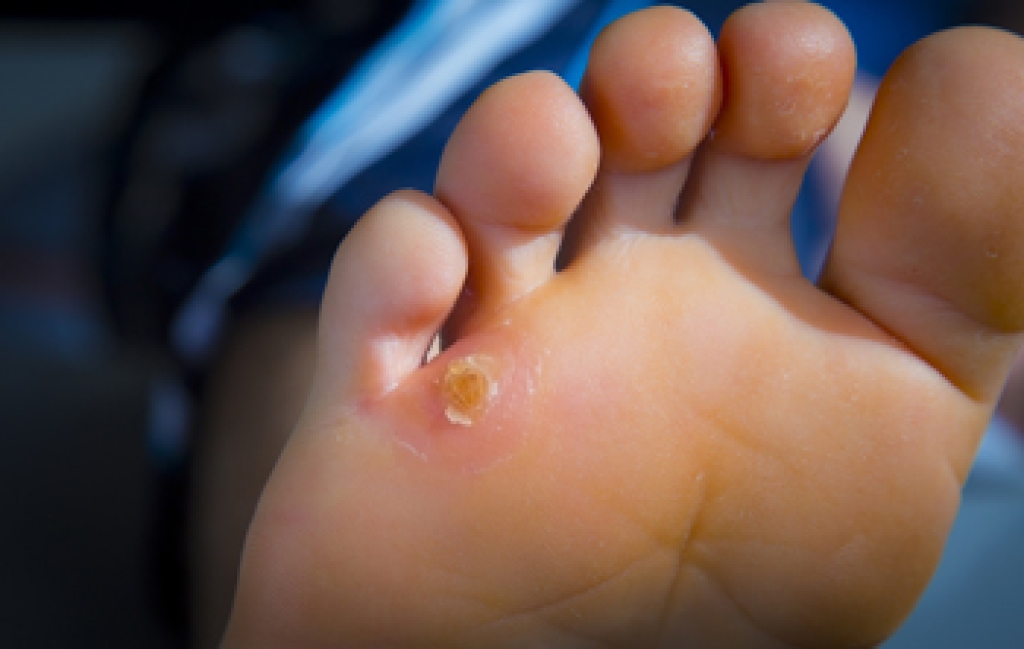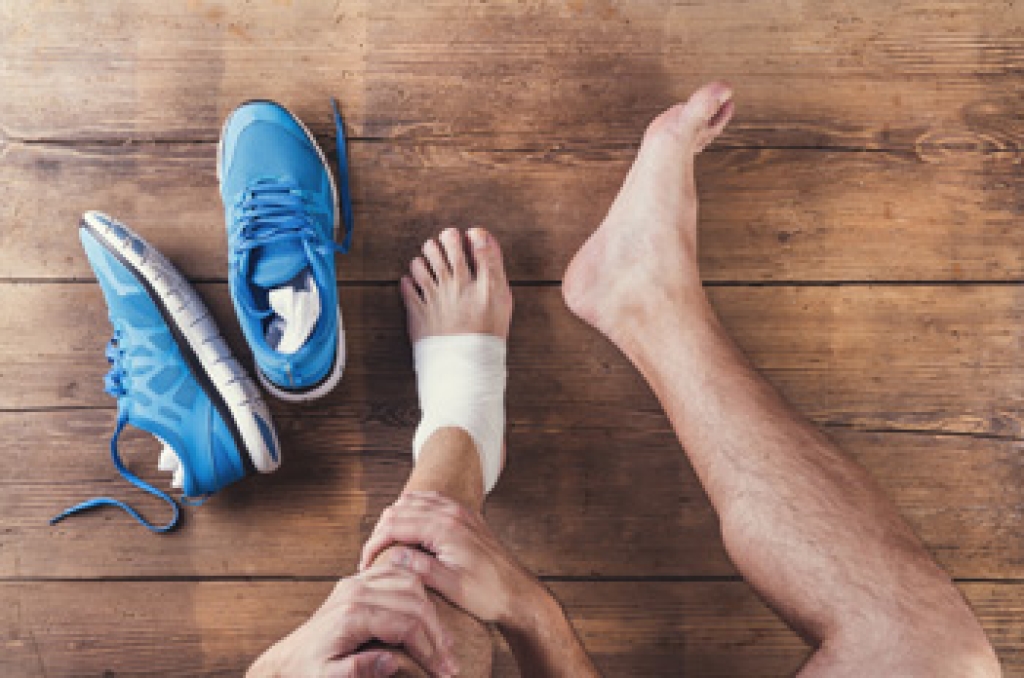 When babies are born, the tendons, joints, and bones are flexible, and this will typically result in children having flat feet until they are older. It may be beneficial to periodically have your child’s feet checked, which may ensure they are developing correctly. Research has shown the foot is comprised of 26 bones and that walking barefoot may aid in the proper development of strong bones and muscles. Wearing socks are beneficial in keeping the feet warm, and a good fit occurs when the socks are one quarter of an inch longer than the biggest toe. The importance of choosing the right size shoe is crucial in possibly preventing uncomfortable foot conditions from developing. It may be helpful to know that a sturdy shoe may be the best choice for this early stage of foot development, in addition to choosing leather soles, which may aid in traction. If you would like additional information about other forms of maintaining good foot health for your child, it is advised to speak with a podiatrist.
When babies are born, the tendons, joints, and bones are flexible, and this will typically result in children having flat feet until they are older. It may be beneficial to periodically have your child’s feet checked, which may ensure they are developing correctly. Research has shown the foot is comprised of 26 bones and that walking barefoot may aid in the proper development of strong bones and muscles. Wearing socks are beneficial in keeping the feet warm, and a good fit occurs when the socks are one quarter of an inch longer than the biggest toe. The importance of choosing the right size shoe is crucial in possibly preventing uncomfortable foot conditions from developing. It may be helpful to know that a sturdy shoe may be the best choice for this early stage of foot development, in addition to choosing leather soles, which may aid in traction. If you would like additional information about other forms of maintaining good foot health for your child, it is advised to speak with a podiatrist.
Making sure that your children maintain good foot health is very important as they grow. If you have any questions, contact one of our podiatrists of PA Foot & Ankle Associates. Our doctors can provide the care you need to keep you pain-free and on your feet.
Keeping Children's Feet Healthy
Having healthy feet during childhood can help prevent medical problems later in life, namely in the back and legs. As children grow, their feet require different types of care. Here are some things to consider...
Although babies do not walk yet, it is still very important to take care of their feet.
Avoid putting tight shoes or socks on his or her feet.
Allow the baby to stretch and kick his or her feet to feel comfortable.
As a toddler, kids are now on the move and begin to develop differently. At this age, toddlers are getting a feel for walking, so don’t be alarmed if your toddler is unsteady or ‘walks funny’.
As your child gets older, it is important to teach them how to take care of their feet.
Show them proper hygiene to prevent infections such as fungus.
Be watchful for any pain or injury.
Have all injuries checked by a doctor as soon as possible.
Comfortable, protective shoes should always be worn, especially at play.
If you have any questions, please feel free to contact one of our offices located in Allentown, Easton, Northampton, and Chew Street in Allentown, PA . We offer the newest diagnostic and treatment technologies for all your foot care needs.



